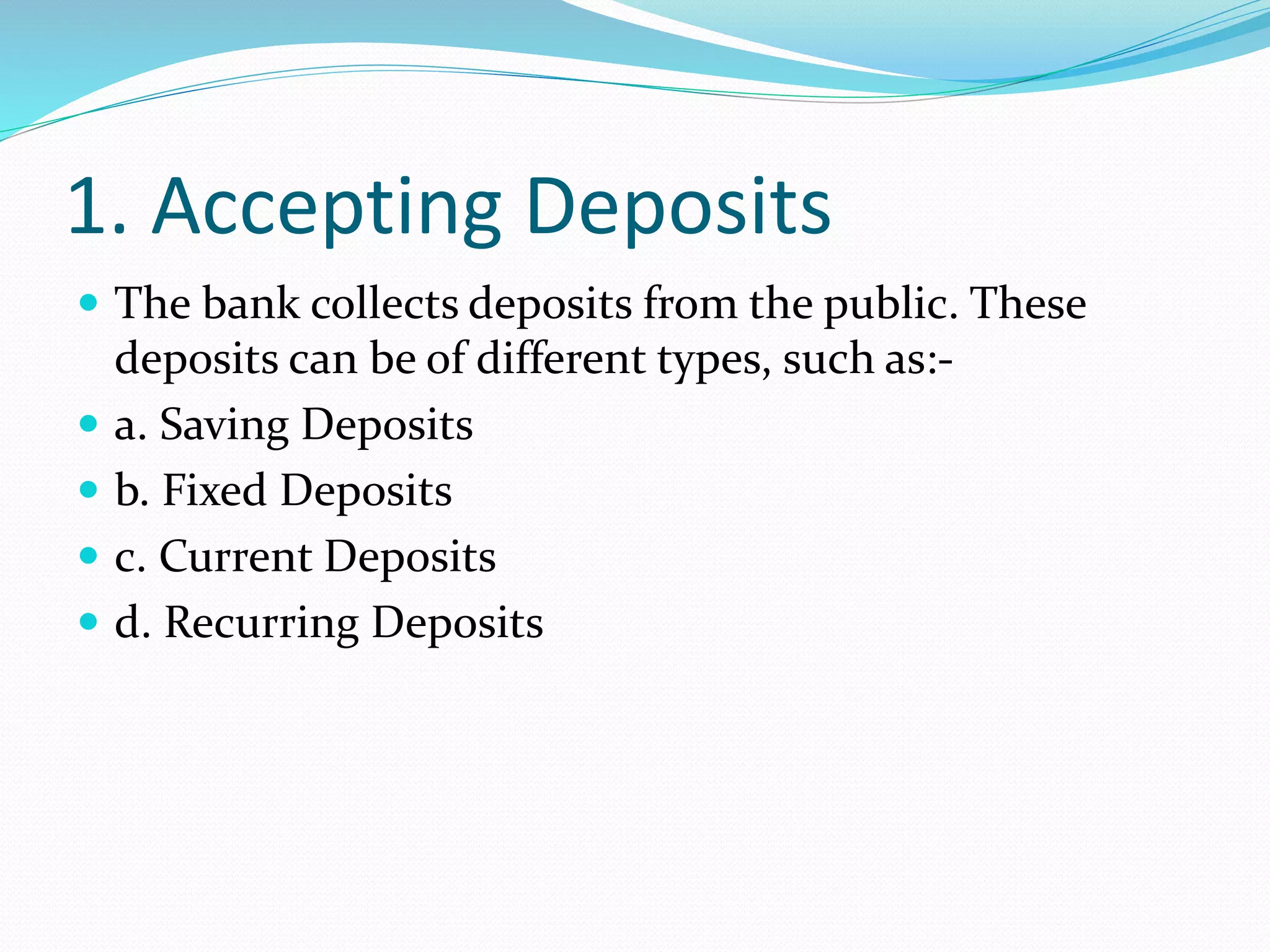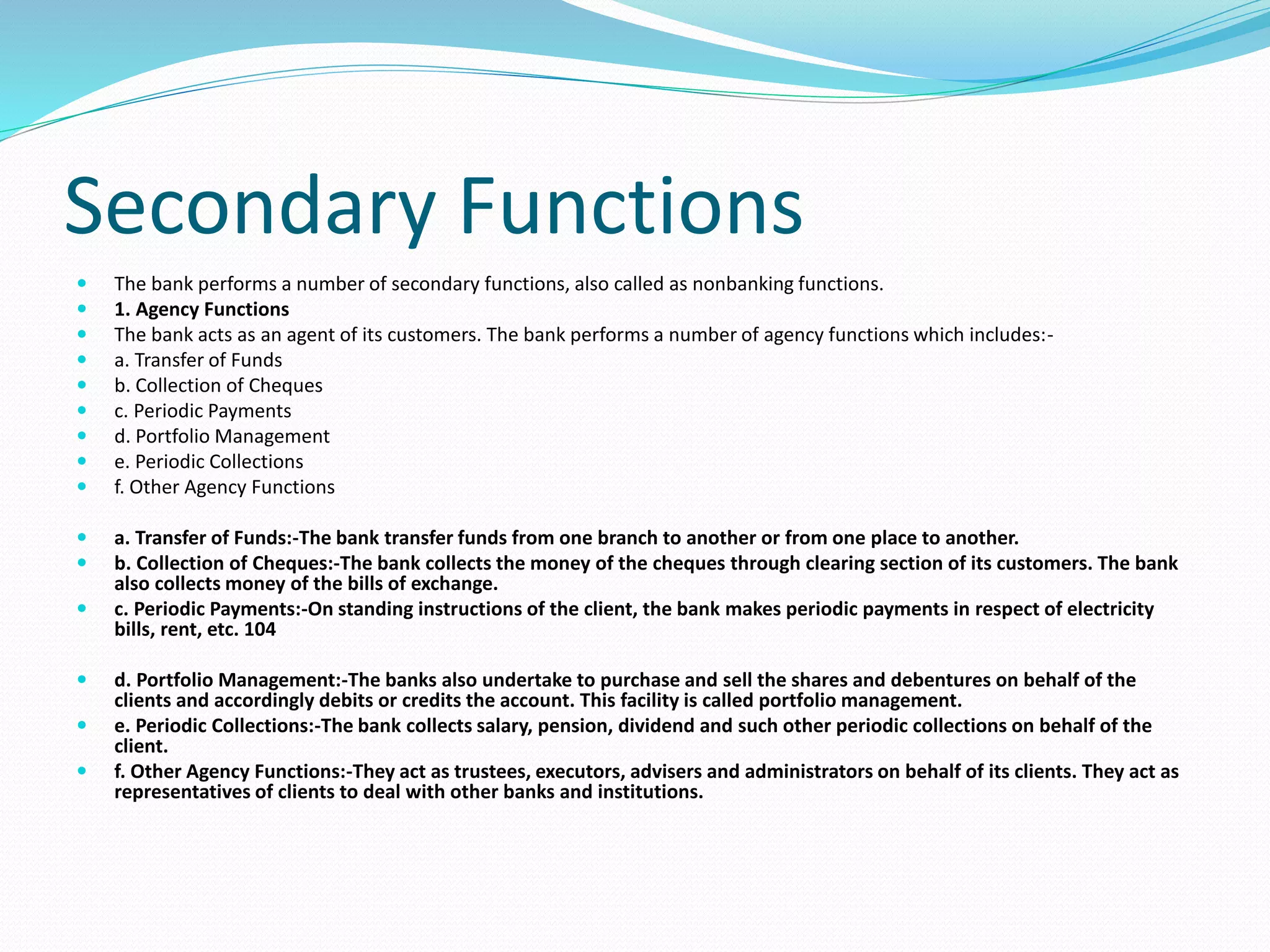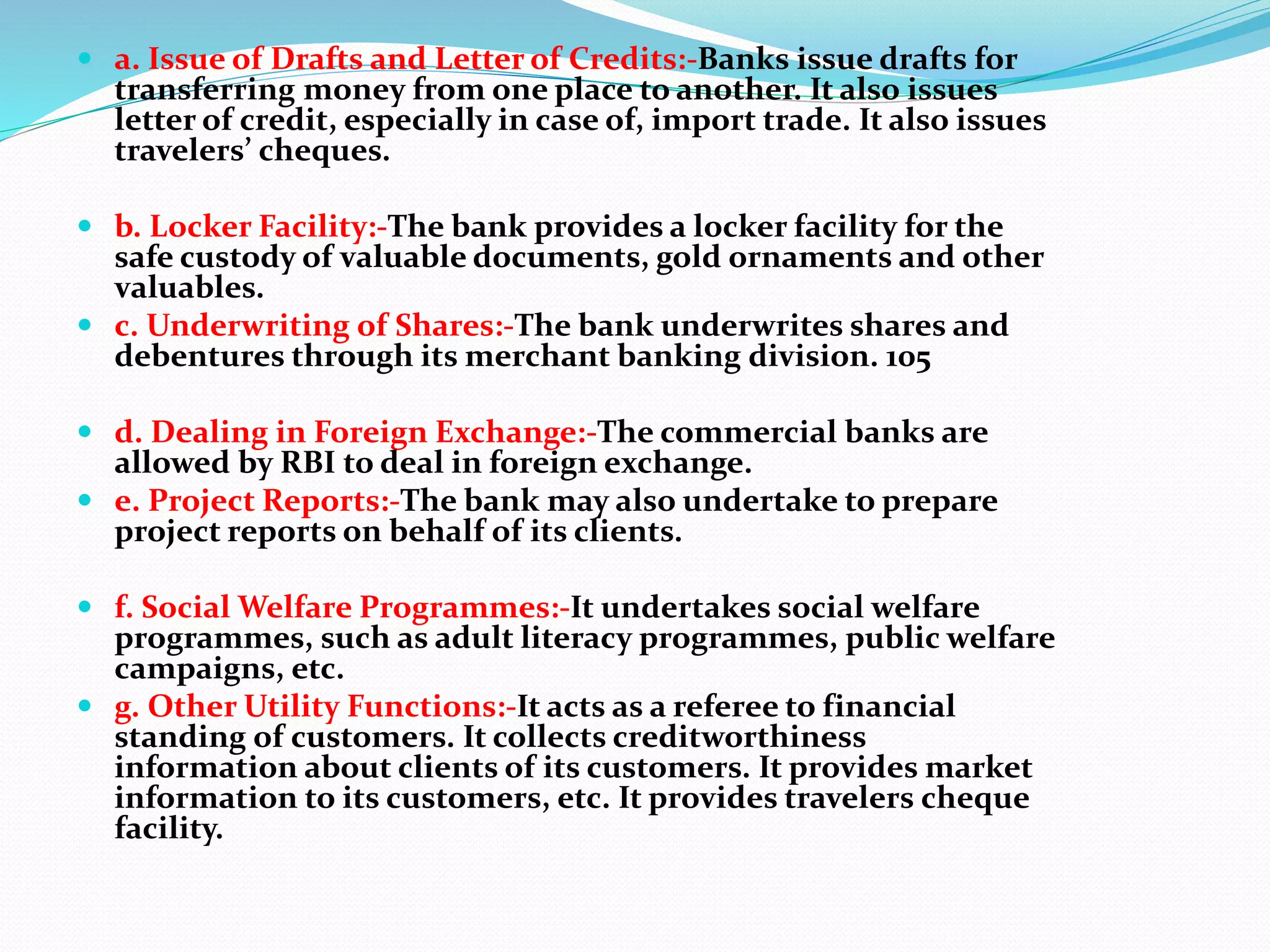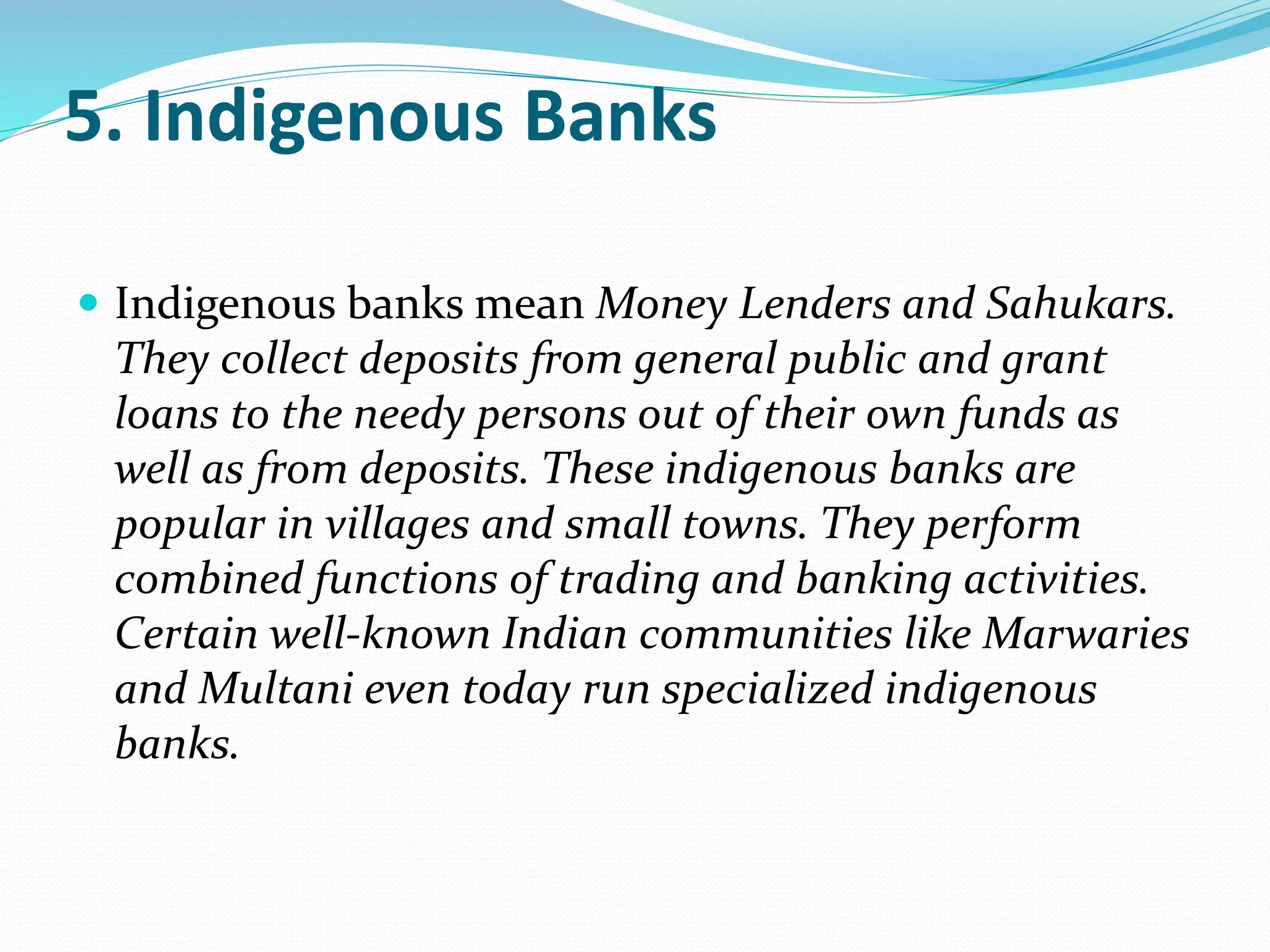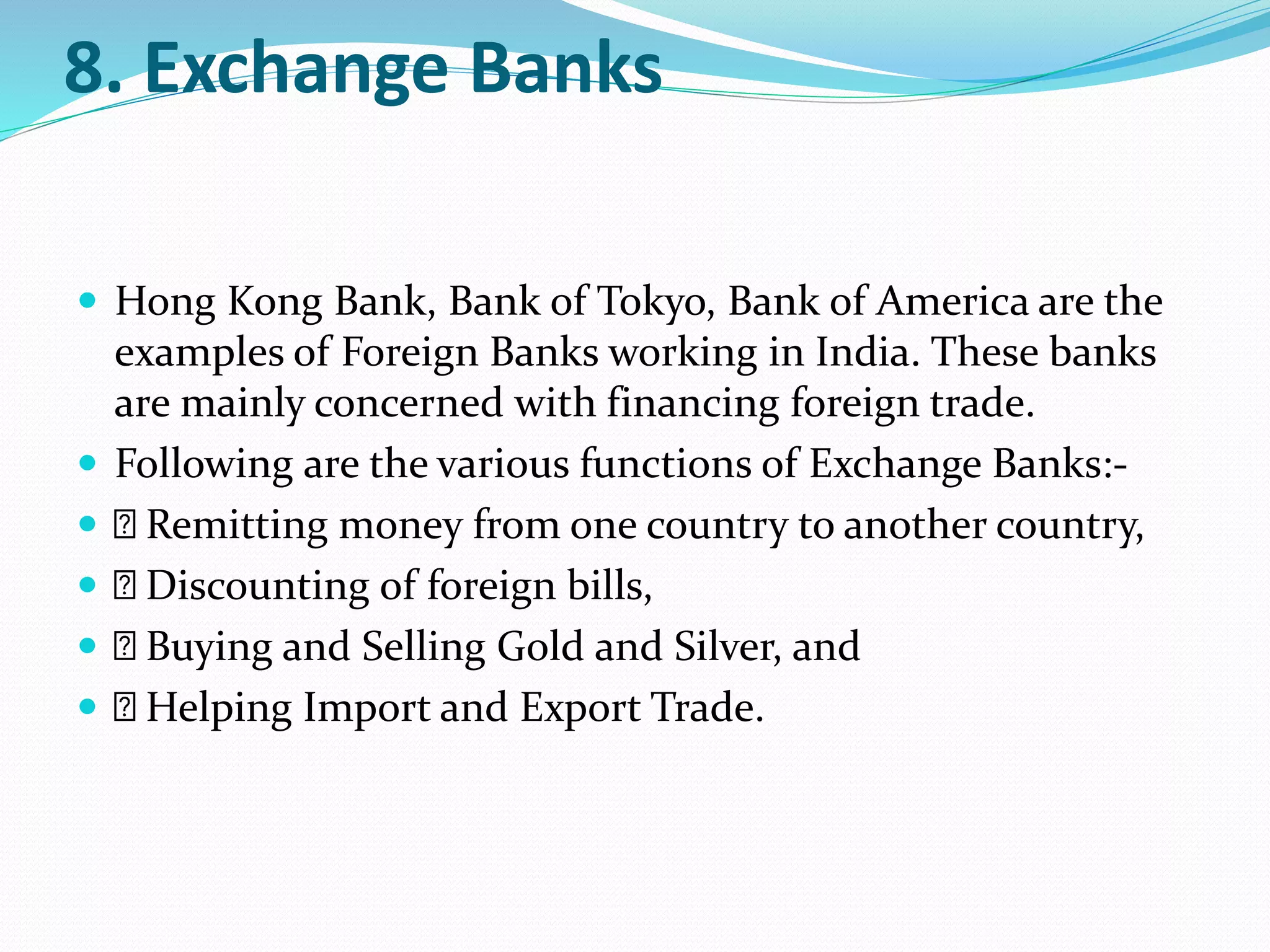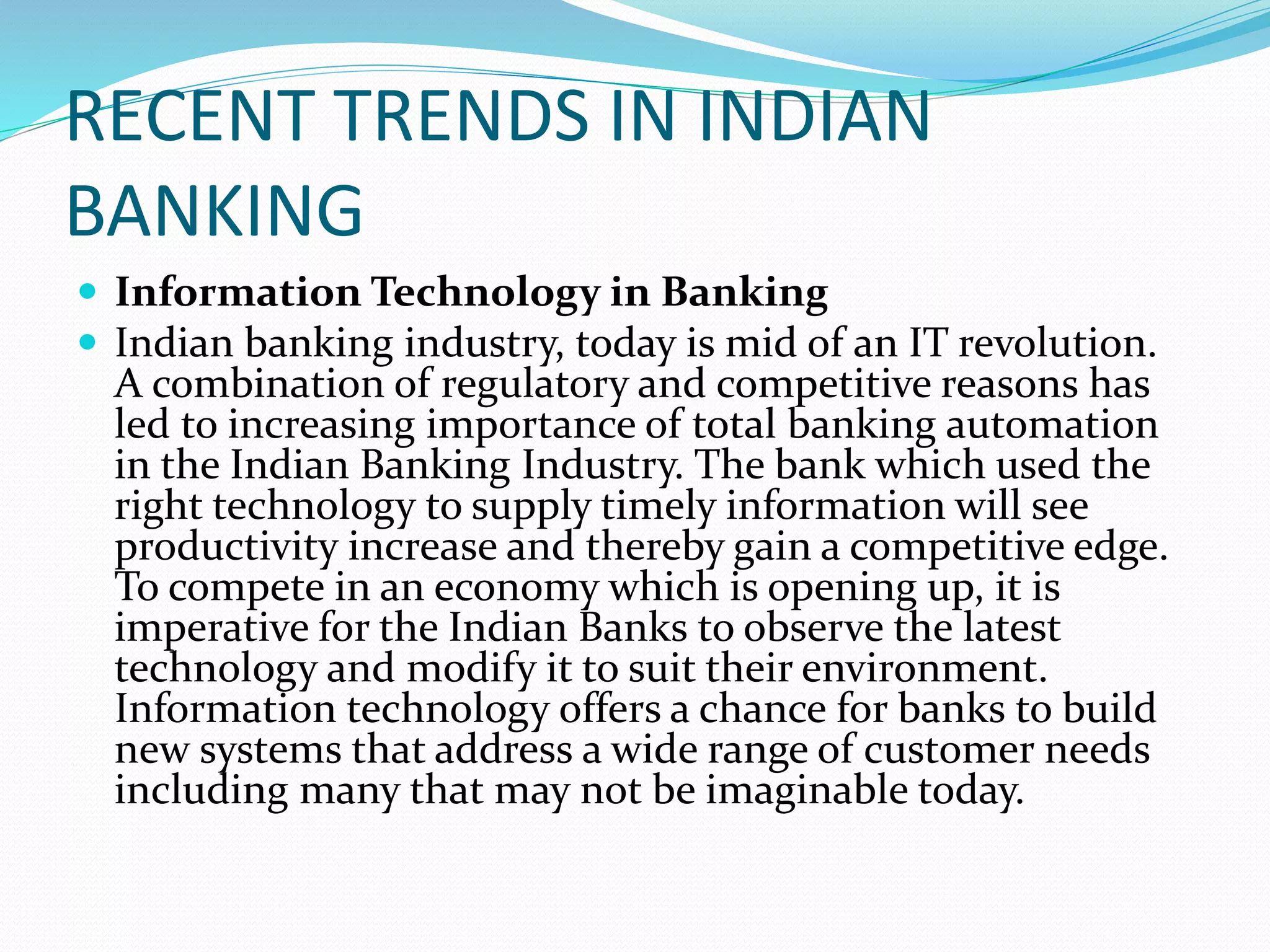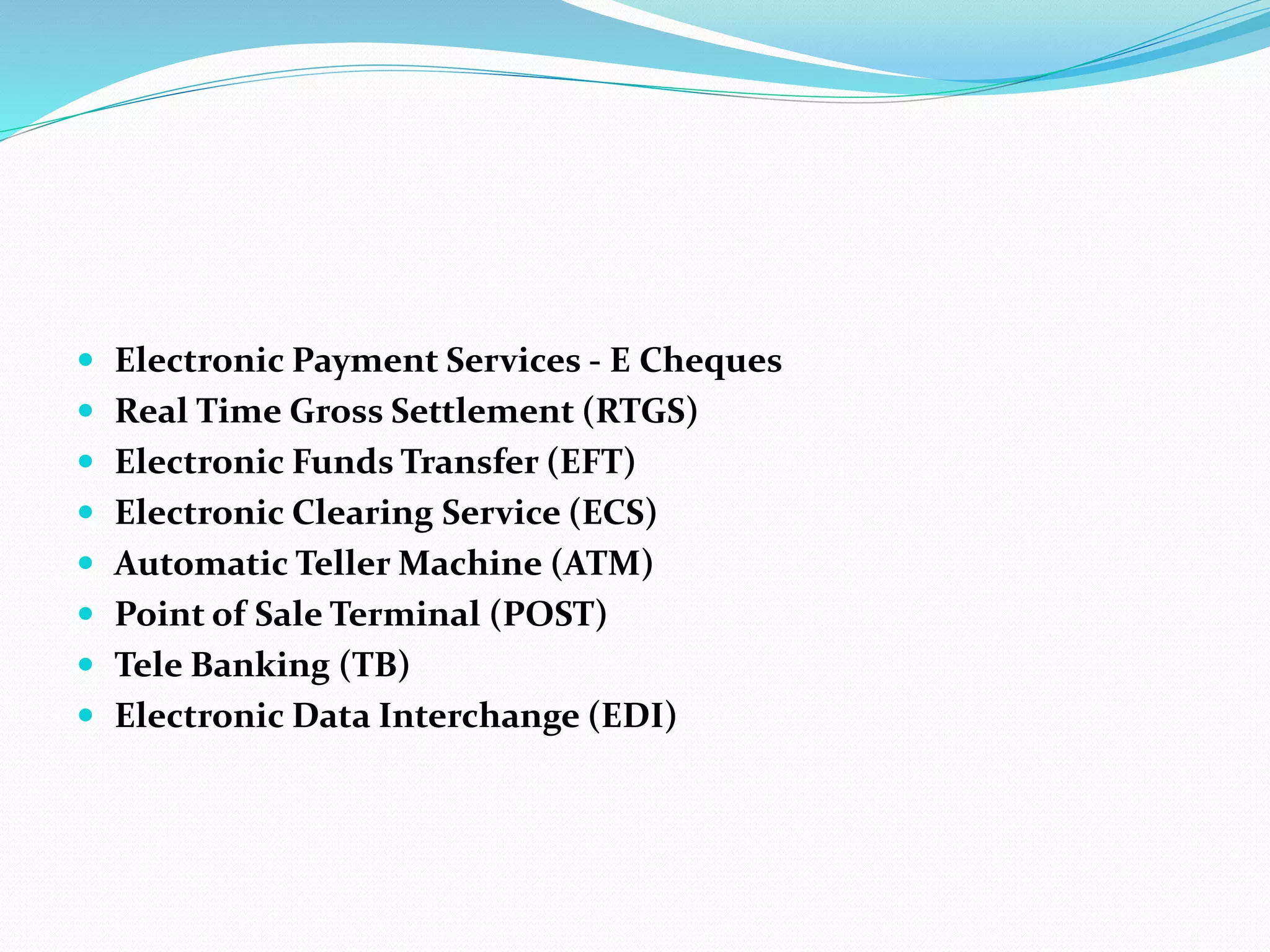Banks act as financial intermediaries that accept deposits and channel those funds into lending activities. Due to their influence, banks are highly regulated. Banks operate under a fractional reserve system, holding only a small reserve while lending out most deposits for profit. When a bank issues a loan, it credits the borrower's account, creating new money in the form of bank deposits. This credit creation process is one way banks generate profits.


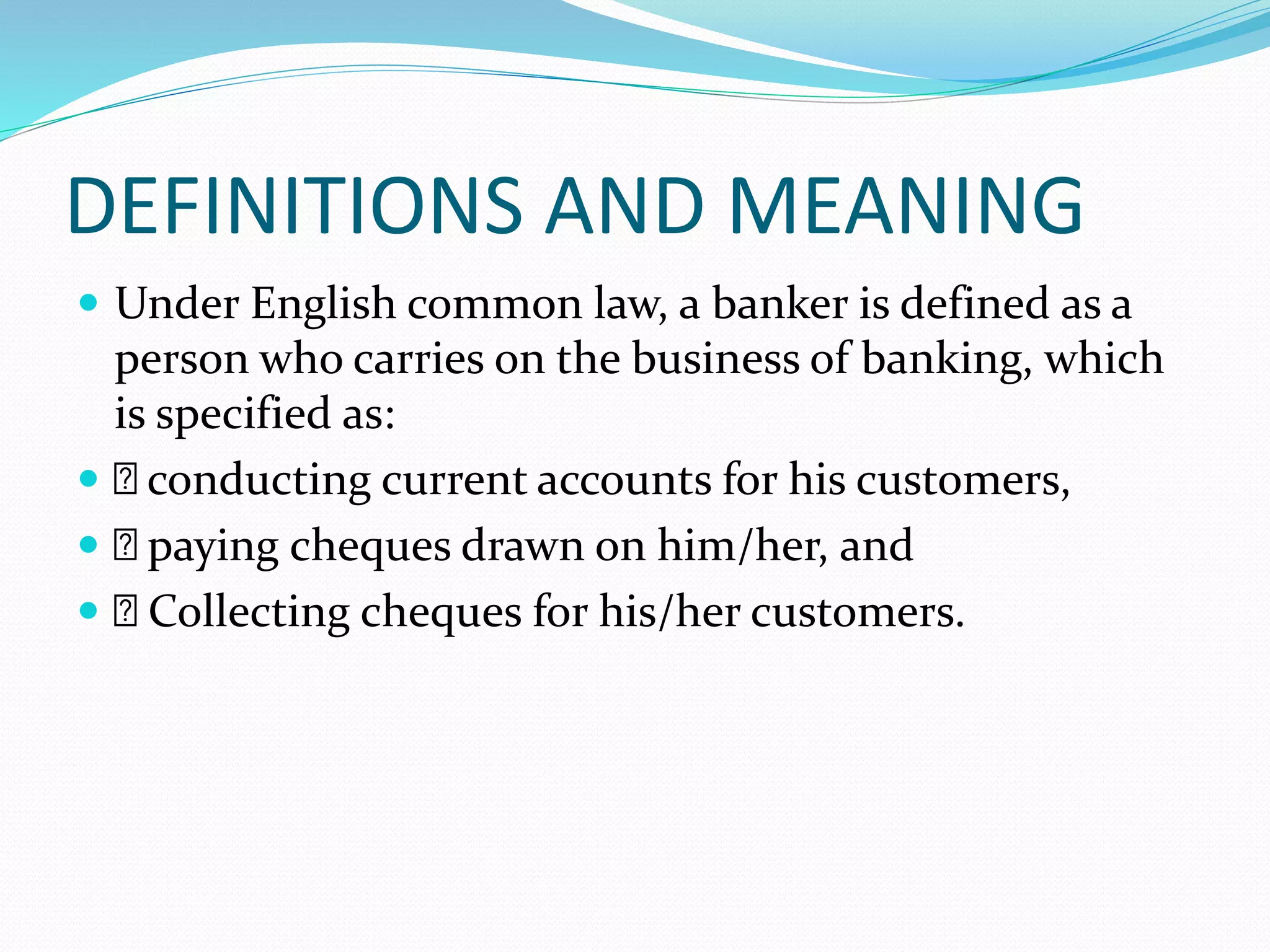
![ "Banking business" means the business of either or
both of the following:
1. receiving from the general public money on current,
deposit, savings or other similar account repayable on
demand or within less than [3 months] ... or with a
period of call or notice of less than that period;
2. paying or collecting checks drawn by or paid in by
customers](https://image.slidesharecdn.com/bankingandfinaance-230325065937-96fa0014/75/BANKING-AND-FINANCE-pptx-4-2048.jpg)

